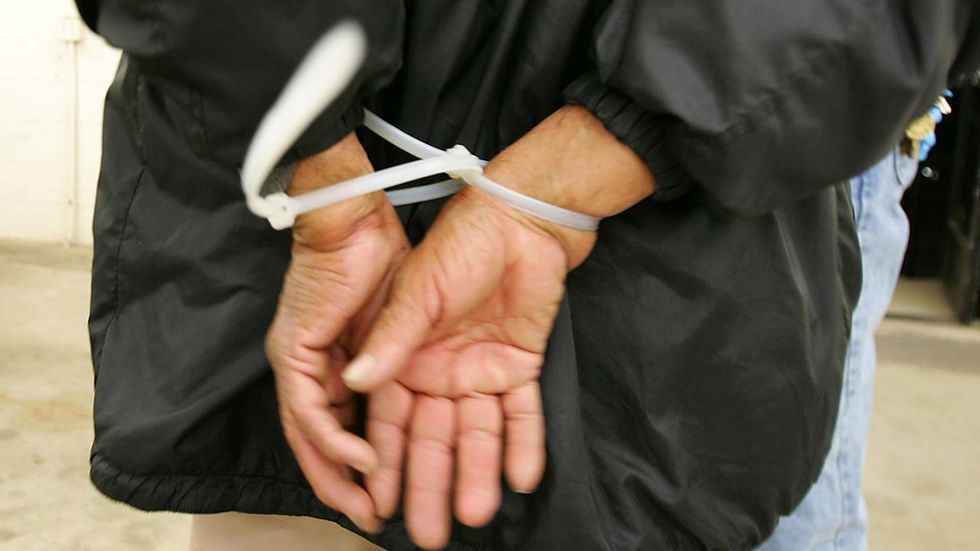
Connecticut police have made arrests and are continuing to work an investigation that has underscored the problem of male sex trafficking. (Photo by David McNew/Getty Images)

Connecticut police have identified at least 15 victims of a sex trafficking ring that could date back as far as the 1990s — and they believe more victims could be out there.
The police investigation in Tolland has brought to light the trauma and shame endured by victims of male sex trafficking, according to The Associated Press.
The operation remained hidden for years until a probation officer reported one of the victims in 2016. Since then, at least three people have been arrested in connection with the ring.
The suspects allegedly preyed on "teenage boys and young men who were developmentally disabled, mentally ill and addicted to drugs," the report states.
Defendant Robert King allegedly recruited victims from drug rehab centers and controlled them by giving them heroin and cocaine. He then required the victims to have sex with other men to repay the cost of the drugs.
King, 53, of Danbury, pleaded guilty in August to conspiracy to commit human trafficking and faces a 4.5-year prison sentence, the report states. Another defendant is wealthy Glastonbury businessman Bruce Bemer, whose attorneys maintain he is innocent. A third defendant, William Trefzger, 74, of Westport, pleaded guilty in February to patronizing a trafficked person. He was sentenced to one year in prison.
Samuel Marino was a victim who suffered in silence and never told his family or police about being trafficked into sexual relations with much older men.
In 2009, at age 26, he died in a car chase with police. Marino’s connection to the trafficking ring was found years later on a handwritten note in one of the suspected leaders' home. Police reportedly found it while they were executing a search warrant.
In the note, Marino wrote that he was “angry, ashamed and disgusted at how he was taken advantage of,” the report states.
"He couldn't deal with the torture and the shame of being prostituted and also of being an addict," his mother, Linda Marino, told the news outlet. "I'm sure he felt hopelessness and despair. The pain of not being able to help my son Sam when he was going through this is insurmountable."
Before the investigation, she said she had no idea what her son went through.
Another victim told police he was paid $50 to $80 for sexual encounters with older men. He also said King allegedly threatened to kill him if he told anyone about the trafficking ring. His story came to light after he shared it with a health care worker.
Although both male and female victims are reluctant to speak out, there are often fewer support services for males, Robert Lung, a Colorado state judge and member of the U.S. Advisory Council on Human Trafficking, told the news outlet. That’s because most of the focus is on female victims, he said.
"The perception by society is boys and men are not victims," said Lung, who is also a sex trafficking survivor. "I can count on one hand the number of organizations that are specific to boys and men in the country. And that's a pretty big problem."
President Donald Trump in March appointed an Advisory Council on Human Trafficking, which is expected to announce recommendations early next year. Lung told the news outlet he hopes better treatment for male trafficking victims will be one of those recommendations.